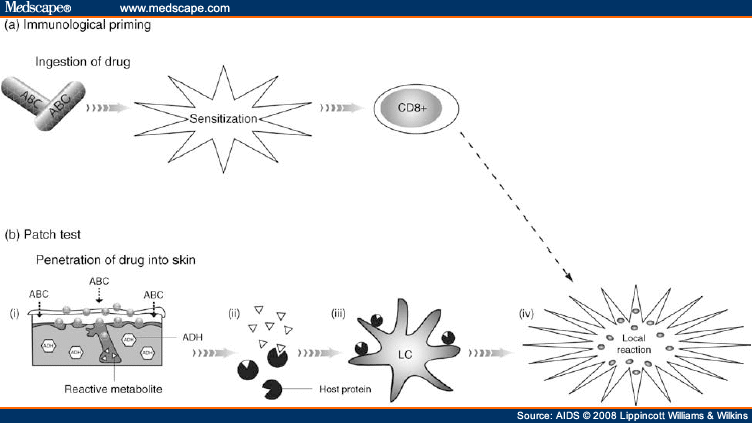Bactrim contains a combination of sulfamethoxazole and trimethoprim and is supplied in tablets and a liquid suspension. Sulfamethoxazole and trimethoprim are both antibiotics that treat different types of infection caused by bacteria.Bactrim is used to treat ear infections, urinary tract infections, bronchitis, traveler's diarrhea, and Pneumocystis carinii pneumonia.
You should not use Bactrim if you are allergic to sulfamethoxazole or trimethoprim, if you are pregnant or breast-feeding, or if you have anemia (lack of red blood cells) caused by folic acid deficiency.
Before using Bactrim, tell your doctor if you have kidney or liver disease, a folic acid deficiency, asthma or severe allergies, AIDS, a glucose-6-phosphate dehydrogenase deficiency (G6PD deficiency), or if you are malnourished.
Take this medication for the full prescribed length of time. Your symptoms may improve before the infection is completely cleared. Bactrim will not treat a viral infection such as the common cold or flu.
Antibiotic medicines can cause diarrhea, which may be a sign of a new infection. If you have diarrhea that is watery or has blood in it, call your doctor. Do not use any medicine to stop the diarrhea unless your doctor has told you to.
Avoid exposure to sunlight, sunlamps, or tanning beds. This medication can make your skin more sensitive to sunlight, and a sunburn may result. Wear protective clothing and use sunscreen (SPF 15 or higher) when you are outdoors.
You should not use Bactrim if you are allergic to sulfamethoxazole or trimethoprim, if you are pregnant or breast-feeding, or if you have anemia (lack of red blood cells) caused by folic acid deficiency.
If you have certain conditions, you may need a dose adjustment or special tests to safely use this medication. Before using Bactrim, tell your doctor if you have:
· kidney or liver disease;
· a folic acid deficiency;
· asthma or severe allergies;
· AIDS;
· a glucose-6-phosphate dehydrogenase deficiency (G6PD deficiency); or
· if you are malnourished.
Take Bactrim exactly as prescribed by your doctor. Do not take it in larger amounts or for longer than recommended. Follow the directions on your prescription label.
Measure liquid medicine with a special dose-measuring spoon or cup, not a regular table spoon. If you do not have a dose-measuring device, ask your pharmacist for one.
Take Bactrim for the full prescribed length of time. Your symptoms may improve before the infection is completely cleared. Bactrim will not treat a viral infection such as the common cold or flu. Drink plenty of fluids to prevent kidney stones while you are taking trimethoprim and sulfamethoxazole. Store the tablets and liquid at room temperature away from moisture, heat, and light.
Get emergency medical help if you have any of these signs of an allergic reaction: hives; difficulty breathing; swelling of your face, lips, tongue, or throat. Call your doctor at once if you have a serious side effect such as:
· fever, sore throat, and headache with a severe blistering, peeling, and red skin rash;
· the first sign of any skin rash, no matter how mild;
· pale skin, easy bruising or bleeding;
· cough, feeling short of breath;
· diarrhea that is watery or bloody;
· feeling restless or irritable, confusion, hallucinations, seizure;
· slow heart rate, weak pulse, severe tingling, numbness, muscle pain or weakness;
· nausea, stomach pain, loss of appetite, itching, dark urine, clay-colored stools, jaundice (yellowing of the skin or eyes);
· fever, chills, body aches, flu symptoms; or
· urinating less than usual or not at all.
Less serious Bactrim side effects may include:
· painful or swollen tongue;
· dizziness, spinning sensation;
· ringing in your ears;
· joint pain; or
· sleep problems (insomnia).
Tell your doctor about all other medications you use, especially:
· seizure medication such as phenytoin (Dilantin);
· a diuretic (water pill);
· a blood thinner such as warfarin (Coumadin);
· methotrexate (Trexall, Rheumatrex); or
· an ACE inhibitor such as benazepril (Lotensin), captopril (Capoten), fosinopril (Monopril), enalapril (Vasotec), lisinopril (Prinivil, Zestril), moexipril (Univasc), perindopril (Aceon), quinapril (Accupril), ramipril (Altace), or trandolapril (Mavik).
